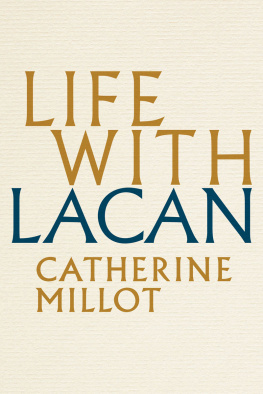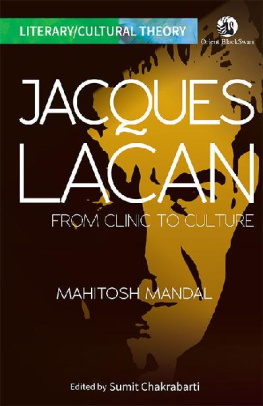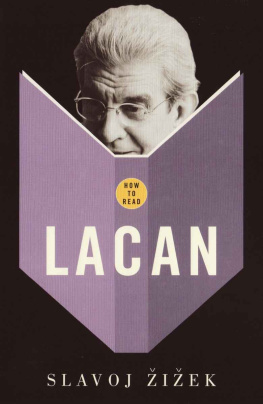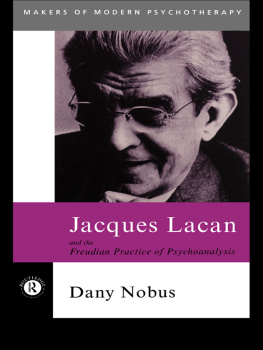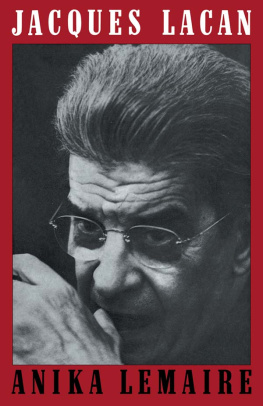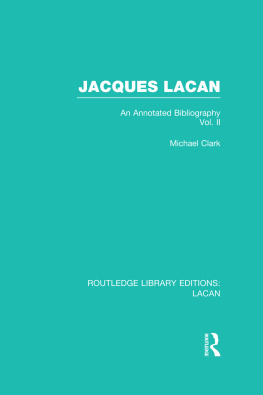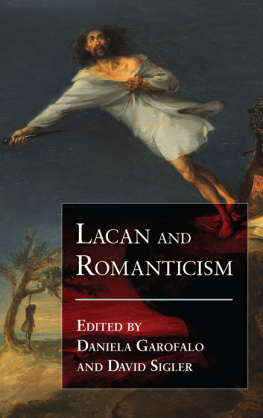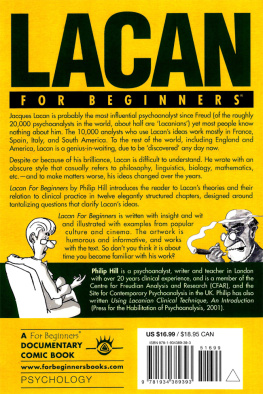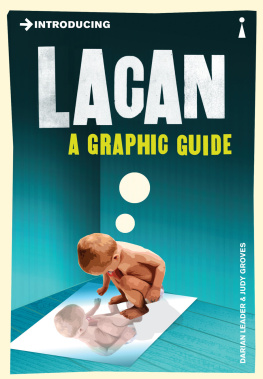
Enjoy Your Symptom!
ieks interest in pop culture, combined with his clear, conventional writing style, makes his books more accessible than most critical theory, perhaps to the greatest degree since Foucault.
San Francisco Bay Guardian
A startling critic of great daring, who doesnt watch his back or observe the pieties as he swerves and swoops through the age of globalised images and fabricated realities.
Times Literary Supplement
The most formidably brilliant exponent of psychoanalysis, indeed of cultural theory in general, to have emerged from Europe for some decades.
Terry Eagleton

Routledge Classics contains the very best of Routledge publishing over the past century or so, books that have, by popular consent, become established as classics in their field. Drawing on a fantastic heritage of innovative writing published by Routledge and its associated imprints, this series makes available in attractive, affordable form some of the most important works of modern times.
For a complete list of titles visit
www.routledge.com/classics
Slavoj
iek
Enjoy Your Symptom!
Jacques Lacan in Hollywood and Out
With a new preface by the author

First published 1992 by Routledge
Second edition published 2001 by Routledge
First published in the Routledge Classics 2008
by Routledge
711 Third Avenue, New York, NY 10017
Simultaneously published in the UK
by Routledge
2 Park Square, Milton Park, Abingdon, Oxon OX14 4RN
First published 1992 by Routledge
Routledge is an imprint of the Taylor & Francis Group, an informa business
1992, 2001, 2008 Routledge
Preface to the Routledge Classics edition 2008 Slavoj iek
Typeset in Joanna by RefineCatch Limited, Bungay, Suffolk
All rights reserved. No part of this book may be reprinted or reproduced or utilized in any form or by any electronic, mechanical, or other means, now known or hereafter invented, including photocopying and recording, or in any information storage or retrieval system, without permission in writing from the publishers.
British Library Cataloguing in Publication Data
A catalogue record for this book is available from the British Library
Library of Congress Cataloging in Publication Data
iek, Slavoj.
Enjoy your symptom! : Jacques Lacan in Hollywood and out / Slavoj Zizek ; with a new preface by the author.
p. cm.
Includes bibliographical references and index.
1. Motion pictures Psychological aspects. 2. Lacan, Jacques, 19011981. I. Title.
PN1995.Z65 2007
150.195dc22 2007022948
ISBN10: 0415772591
ISBN13: 9780415772594
CONTENTS
PREFACE TO THE ROUTLEDGE CLASSICS EDITION
Enjoy Your Symptomor Your Fetish?
There are two ways to understand the thesis that we live in a post-ideological world: either we take it in a naive post-political sense (finally liberated from the burden of great ideological narratives and causes, we can dedicate ourselves to solving pragmatically real problems), or, in a more critical way, as a sign of todays predominant cynicism (todays power no longer needs a consistent ideological edifice to legitimize its rule; it can afford to state directly the obvious truthsearch for profits, brutal imposition of economic interests). According to the second reading, there is no longer a need for refined procedure of Ideologiekritik, for a symptomal reading that detects the faults in an ideological edifice: such a procedure knocks on an open door, since the thoroughly cynical power-discourse concedes all this in advance, like todays analysant who calmly accepts the analysts suggestions about his innermost obscene desire, no longer being shocked by anything.
Is this, however, effectively the case? If it is, then Ideologiekritik and psychoanalysis are today ultimately of no use, since the wager of their interpretive procedure is that the subject CANNOT openly admit and really assume the truth about what s/he is doing. However, psychoanalysis opens up a way to unmask this apparent proof of its uselessness, by way of detecting, beneath the deceiving openness of post-ideological cynicism, the contours of fetishism, and thus to oppose the fetishist mode of ideology, which predominates in our allegedly post-ideological era, to its traditional symptomal mode, in which the ideological lie which structures our perception of reality is threatened by symptoms, qua returns of the repressed, cracks in the fabric of the ideological lie. Fetish is effectively a kind of envers of the symptom. That is to say, symptom is the exception which disturbs the surface of the false appearance, the point at which the repressed Other Scene erupts, while fetish is the embodiment of the Lie which enables us to sustain the unbearable truth. Let us take the case of the death of a beloved person: in the case of a symptom, I repress this death, I try not to think about it, but the repressed trauma returns in the symptom; in the case of a fetish, on the contrary, I rationally fully accept this death, and yet I cling to the fetish, to some feature that embodies for me the disavowal of this death. In this sense, a fetish can play a very constructive role of allowing us to cope with the harsh reality: fetishists are not dreamers lost in their private worlds, they are thoroughly realists, able to accept the way things effectively aresince they have their fetish to which they can cling in order to cancel the full impact of reality. There is a wonderful early short story by Patricia Highsmith, Button, about a middle-class New Yorker who lives with a mongoloid nine-year-old son who babbles meaningless sounds all the time and smiles, while saliva is running out of his open mouth; one late evening, unable to endure the situation, he decides to take a walk on the lone Manhattan streets where he stumbles upon a destitute homeless beggar who pleadingly extends his hand towards him; in an act of inexplicable fury, the hero beats the beggar to death and tears off from his jacket a button. Afterwards, he returns home a changed man, enduring his family nightmare without any traumas, capable of even a kind smile towards his mongoloid son; he keeps this button all the time in the pocket of his trousersa perfect fetish, the embodied disavowal of his miserable reality, the constant remainder that, once at least, he did strike back against his miserable destiny.
In psychiatric circles, there is a story told about a man whose wife was diagnosed with acute breast cancer and died three months afterwards; the husband survived her death unscathed, being able to talk coolly about his traumatic last moments with herhow? Was he a cold distanced monster with no feelings? Soon, his friends noticed that, while talking about his deceased wife, he always held in his hands a hamster, her pet object: his fetish, the embodied disavowal of her death. No wonder that, when, a couple of months later, the hamster died, the guy broke down and had to be hospitalized for a long period, treated for acute depression. So, when we are bombarded by claims that in our post-ideological cynical era nobody believes in the proclaimed ideals, when we encounter a person who claims he is cured of any beliefs, accepting social reality the way it really is, one should always counter such claims with the question: OK, but
Next page


